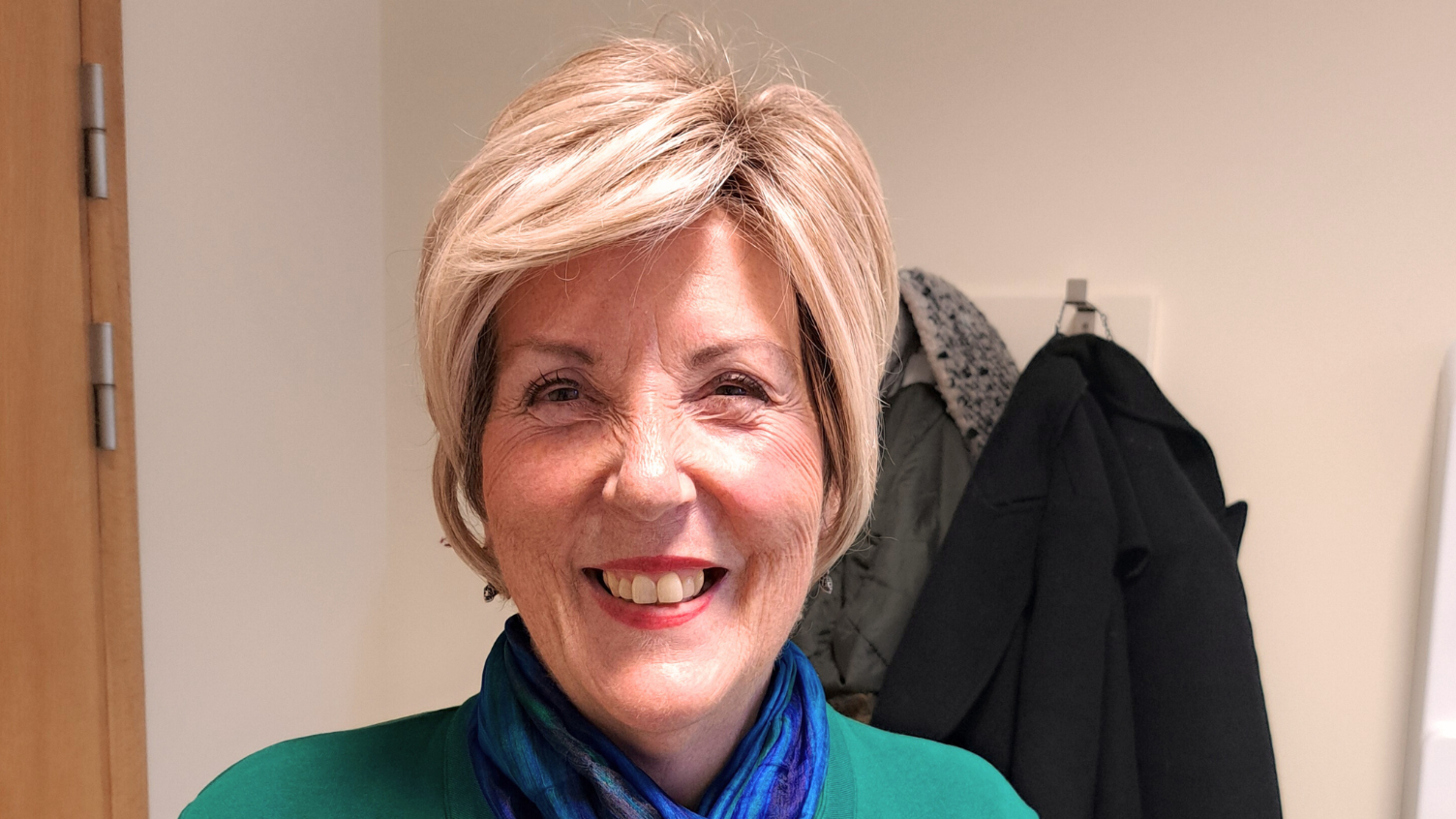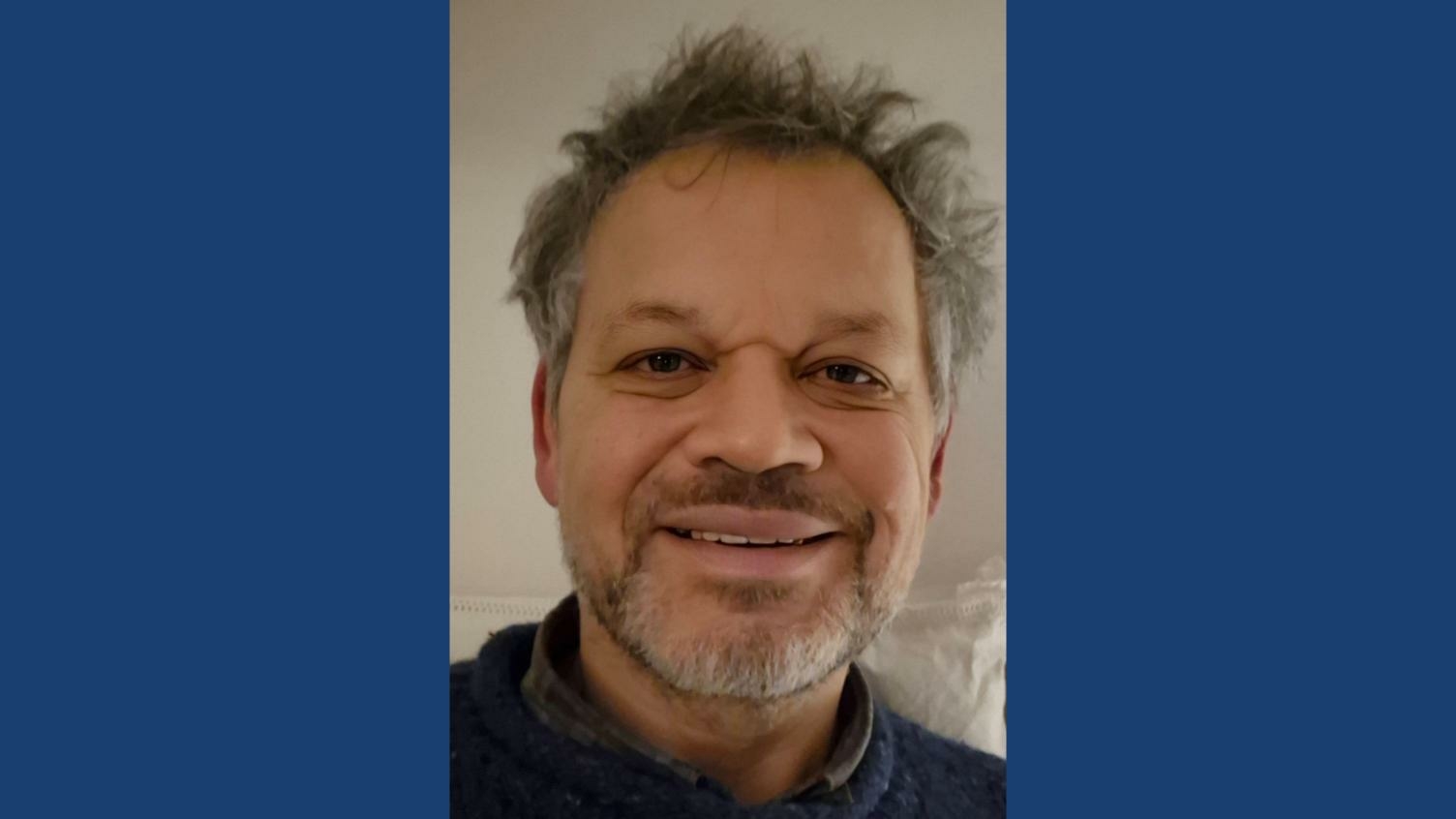Sisters join study to improve preventative surgery options for women at increased risk of cancer
- 23 September 2021
- 6 min read
Sisters Laura and Rebecca joined a study to increase surgical options for women who, like them, were diagnosed with the BRCA gene mutation.
Sisters Laura and Rebecca underwent preventative surgery to remove their breasts, ovaries and fallopian tubes after tests showed that they had the BRCA gene mutation, an inherited genetic condition putting them at an increased risk of cancer. They chose to be part of the National Institute of Health Research-supported PROTECTOR study investigating a new two-step surgical approach to removing the ovaries and fallopian tubes separately. Researchers hope this could offer women the chance to avoid an early menopause and its side effects while still reducing their risk of cancer.
Laura, 48, and Rebecca, 46, first suspected they, along with their other sister Emma, may have inherited an increased risk of cancer after their father was diagnosed with pancreatic cancer.
"It was Christmas 2018 when we first noticed something was wrong with my father. He just wasn't himself. He was usually very active, but all of a sudden he kept stopping and having little sleeps," said Laura. "He quickly got diagnosed with cancer and, in March 2019, he found out that it was a result of the BRCA gene mutation. His doctor advised him that the gene was hereditary so my dad encouraged me and my two sisters to get tested to see if we had it too."
Rebecca added: "My sisters and I quickly decided we all needed to get tested. I have a tendency to panic about things so once I found out that I might carry the BRCA gene mutation I was pushing to get a test date as soon as possible."
BRCA gene testing
All three sisters went for genetic testing at the Gene Carrier Clinic at Royal Surrey NHS Foundation Trust, where they discovered they all had the mutated BRCA2 gene. At Royal Surrey, they were offered a one-stop service where they were invited to have consultations with the geneticist, breast surgeon, gynaecological oncologists, breast care nurses and psychologists, to discuss all their options.
They all quickly decided to go ahead with the preventative surgery.
"At first, we were all shocked to find out we were at high risk of developing cancer. I had never even heard of the BRCA genes before my father spoke to us about them. But, right from the start, there was no doubt in my mind that risk-reducing surgery was the best option for me. My family is complete, and I felt lucky in this respect. I also felt I owed it to my children to seize the opportunity to have what could be a life-saving operation. I felt blessed to have that choice," explains Laura, who has three children aged eight, 13 and 16.
"I'm a full-time carer for my 16-year-old daughter who has a number of disabilities. She will always need a lot of care so I need to be there for her, and I need to be fit and strong enough to help her for as long as possible," she continued.
Rebecca, who has two children aged 10 and 12, adds: "It was an easy decision for me too. When we first found we had gene mutation we all went for an MRI to see if we already had cancerous cells. There was a moment while I was waiting for the result that I was convinced I had breast cancer. It was such a relief to find out I didn't - and I never want to feel like that again."
Emma also decided to go ahead with the preventative surgery, but will be doing so at a later date as she became pregnant during the early consultations and gave birth to a baby boy earlier this year.
PROTECTOR study
As part of their care, the PROTECTOR Principal Investigators at Royal Surrey discussed the PROTECTOR study, which is led by Queen Mary University of London. For women, like Laura and Rebecca, who have chosen risk-reducing surgery to remove their ovaries and fallopian tubes, the standard surgery is to remove both fallopian tubes and ovaries at the same time. Removing a woman's ovaries instantly induces menopause and its adverse effects, which can cause distress for many women and more so when surgically induced.
The PROTECTOR study is investigating if removing the fallopian tubes in an initial operation followed by a second operation at a later date to remove the ovaries can offer women a similar reduction in cancer risk while avoiding an early, surgically induced menopause.
Dr Kavitha Madhuri, who was part of Laura's surgical team and one of Royal Surrey's Principal Investigators on the PROTECTOR study, said:
"It is well established that a large proportion of ovarian cancers start in the fallopian tube and a number of experts believe that removing the fallopian tubes alone will offer some protection from ovarian cancer.
"The standard ovarian risk-reducing surgery, removing both the tubes and ovaries simultaneously, induces surgical menopause in women who have not yet reached that stage of life. Many young women who I have consulted with over the years have been saddened by this prospect. They have concerns about side effects such as low moods, hot flushes and reduced sex drive, as well as the increased risk of osteoporosis and cardiovascular disease that are a direct result of an early menopause."
Both sisters agreed to join the study without hesitation. "I wanted to help other people going through what we were going through. Being part of a study to expand treatment options felt like a good way," said Rebecca.
Laura adds:
“I saw PROTECTOR as an opportunity to expand knowledge and potentially surgical options for people in my situation, which I felt was particularly important for younger women facing the prospect of an early menopause.”
As part of the study, Laura and Rebecca were able to choose to be monitored in one of three groups: no surgery; risk-reducing standard surgery; or risk-reducing early fallopian tube removal followed by a delayed ovary removal.
"I chose to be part of the standard surgery group because I felt I wasn't too far away from the menopause anyway. Being part of the study was straightforward and streamlined into treatment. It was easy to forget that I was part of a trial," Laura said.
Rebecca considered the novel two-step surgery, but decided to join the standard surgery arm. She said: "I was worried about the effects of the menopause and hormone replacement therapy so it was tempting to be able to delay this inevitable process. But, in the end I came to the same conclusion as Laura."
No regrets
Both sisters have no regrets about their decisions. Two years on from their first diagnosis they have completed three surgeries - ovaries and fallopian tube removal, mastectomy and reconstructive breast surgery.
"From day one, everything about both the surgeries and the study was well explained and I never doubted either was the right thing to do. The hardest part of the whole process was leaving my children overnight to have the surgery as I have never been away from them before," Laura said.
Rebecca added: "I view my experience as a positive story and it's nice to be on the other side of the surgeries. During the process we had a team of expert medics working with us and each other to rely on. Laura, Emma and I are very close and have provided support and sounding boards for each other. I'm pleased that by joining the PROTECTOR study my experience will help provide the best surgery options for other women diagnosed with the BRCA mutation in the future."


